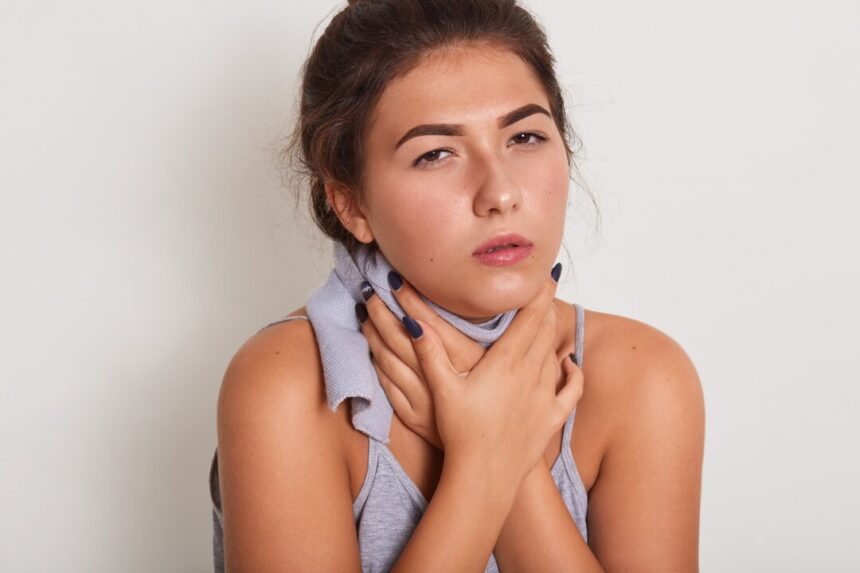Mumps is a contagious viral infection characterized by swelling of the salivary glands, typically the parotid glands located just below the ears. While mumps cases have declined significantly due to widespread vaccination, outbreaks can still occur, highlighting the importance of recognizing the signs and symptoms of this condition. In this article, we will explore the signs of mumps, methods of diagnosis, and available treatment options.
What is Mumps?
Mumps is caused by the mumps virus, a member of the paramyxovirus family. It is transmitted through respiratory droplets or direct contact with an infected person’s saliva or respiratory secretions. The virus primarily affects the salivary glands, leading to inflammation and swelling, but it can also involve other organs such as the brain, pancreas, and reproductive organs.
Signs and Symptoms:
- Swelling of the Salivary Glands: The hallmark sign of mumps is swollen, tender glands on one or both sides of the face, usually below the ears. This swelling can cause a noticeable bulge in the cheeks or jawline.
- Pain and Discomfort: The swollen glands may be painful, especially when eating, drinking, or swallowing. Some individuals may experience pain or tenderness in the affected area.
- Fever: Mumps infection is often accompanied by a low-grade fever, typically ranging from 100.4°F to 103°F (38°C to 39.4°C). Fever may precede or coincide with the onset of glandular swelling.
- Headache: Many individuals with mumps experience headaches, which may vary in intensity and duration.
- Fatigue: Fatigue and malaise are common symptoms of mumps infection, often accompanying other symptoms such as fever and swelling.
- Loss of Appetite: Some individuals may experience a decreased appetite or difficulty eating due to pain and swelling in the salivary glands.
- Earache: In some cases, mumps infection can cause earache or discomfort, especially when chewing or swallowing.
- Muscle Aches: Muscle aches and body pains may occur, similar to those associated with influenza or other viral infections.
Diagnosis:
Diagnosing mumps is based on clinical evaluation and laboratory testing. A healthcare provider will typically assess the patient’s symptoms, medical history, and physical examination findings, including the presence of swollen salivary glands. Laboratory tests, such as viral culture, polymerase chain reaction (PCR), or serological testing, may be performed to confirm the diagnosis by detecting the presence of the mumps virus or antibodies in blood or saliva samples.
Treatment:
There is no specific antiviral treatment for mumps, and the infection is typically managed through supportive care to relieve symptoms and prevent complications. Treatment may include:
- Pain Relief: Over-the-counter pain relievers such as acetaminophen or ibuprofen may help alleviate pain, fever, and discomfort associated with mumps.
- Rest and Hydration: Adequate rest and hydration are essential to support the body’s immune response and promote recovery. Encourage the patient to drink plenty of fluids and get sufficient rest until symptoms improve.
- Warm Compresses: Applying warm compresses to the swollen glands may help reduce pain and inflammation.
- Isolation and Quarantine: Individuals diagnosed with mumps should be isolated from others to prevent the spread of the virus. Quarantine measures may be necessary to minimize the risk of transmission to others, especially in outbreak settings.
Prevention:
Vaccination is the most effective means of preventing mumps infection. The measles, mumps, and rubella (MMR) vaccine is routinely recommended for children and adults to provide immunity against mumps and other viral diseases. Maintaining good hygiene practices, such as frequent handwashing and avoiding close contact with sick individuals, can also help reduce the risk of mumps transmission.
Recognizing the signs and symptoms of mumps is essential for timely diagnosis and appropriate management of this contagious viral infection. While mumps cases have declined significantly in countries with high vaccination coverage, outbreaks can still occur, emphasizing the importance of vaccination and public health measures to control the spread of the virus. If you or someone you know experiences symptoms suggestive of mumps, consult a healthcare provider for evaluation, diagnosis, and guidance on appropriate management and preventive measures.










